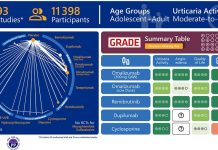
Obsessive-Compulsive Disorder (OCD) affects 1% to 3% of children by age 17, presenting a significant mental health concern.
A subset of these cases may be linked to Pediatric Autoimmune Neuropsychiatric Disorders (PANDAS), a condition thought to be triggered by streptococcal infections.
However, the biological basis of PANDAS has remained elusive, leading to debate in the medical community about its distinctiveness from traditional OCD.
Yale University’s Groundbreaking Findings
A recent study by Yale University researchers has shed light on the potential cause of mental disease, particularly in the context of OCD and PANDAS.
Focusing on 27 children diagnosed with PANDAS and 23 control subjects, the study unveiled a critical connection between specific antibodies and brain cells known as interneurons.
Interneurons, pivotal in modifying the signaling of other cells in the brain, appear to be the target of these antibodies.
The study found that children with PANDAS have high levels of antibodies that attack these specific neurons, particularly in the striatum, a brain region linked with voluntary motor control and OCD.
When these antibodies bind to interneurons, they reduce their activity. This discovery is significant, as it aligns with findings in adults with Tourette syndrome, where a lack of the same striatal interneurons is evident.
This parallel suggests that interneuron issues might be a common thread in several related conditions.
Future Research Directions
The study opens new avenues for exploring the presence and impact of interneuron-binding antibodies in children with OCD and Tourette syndrome. Understanding the prevalence and role of these antibodies could revolutionize the approach to treating these conditions.
While some medical professionals remain skeptical about PANDAS as a distinct entity from OCD, this study brings hope for clarity.
By highlighting the biological underpinnings of the disorder, it paves the way for more targeted treatments and a better understanding of pediatric OCD.
Conclusion
This research, published in the American Journal of Psychiatry, marks a significant advancement in our understanding of OCD in children.
It not only offers insights into the biological mechanisms behind the disorder but also provides hope for more effective interventions and a deeper understanding of related neuropsychiatric conditions.
If you care about mental health, please read studies about One sleepless night can reverse depression for days and findings of Scientists find better treatment for older adults with depression.
For more information about mental health, please see recent studies about how dairy foods may influence depression risk, and results showing Omega-3 fats may help reduce depression.
Copyright © 2023 Knowridge Science Report. All rights reserved.



